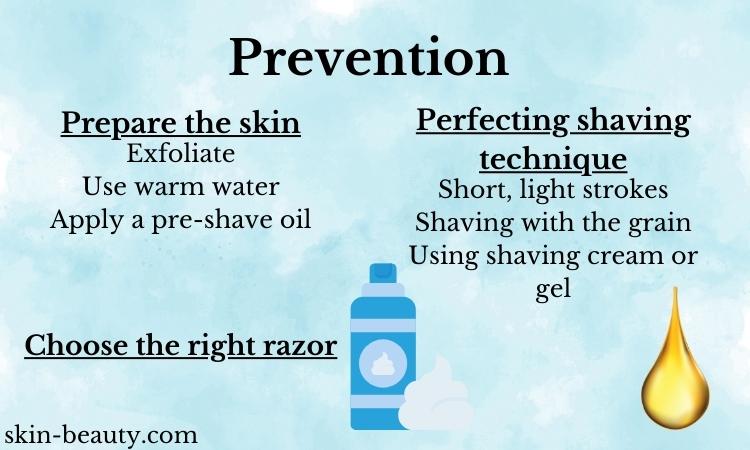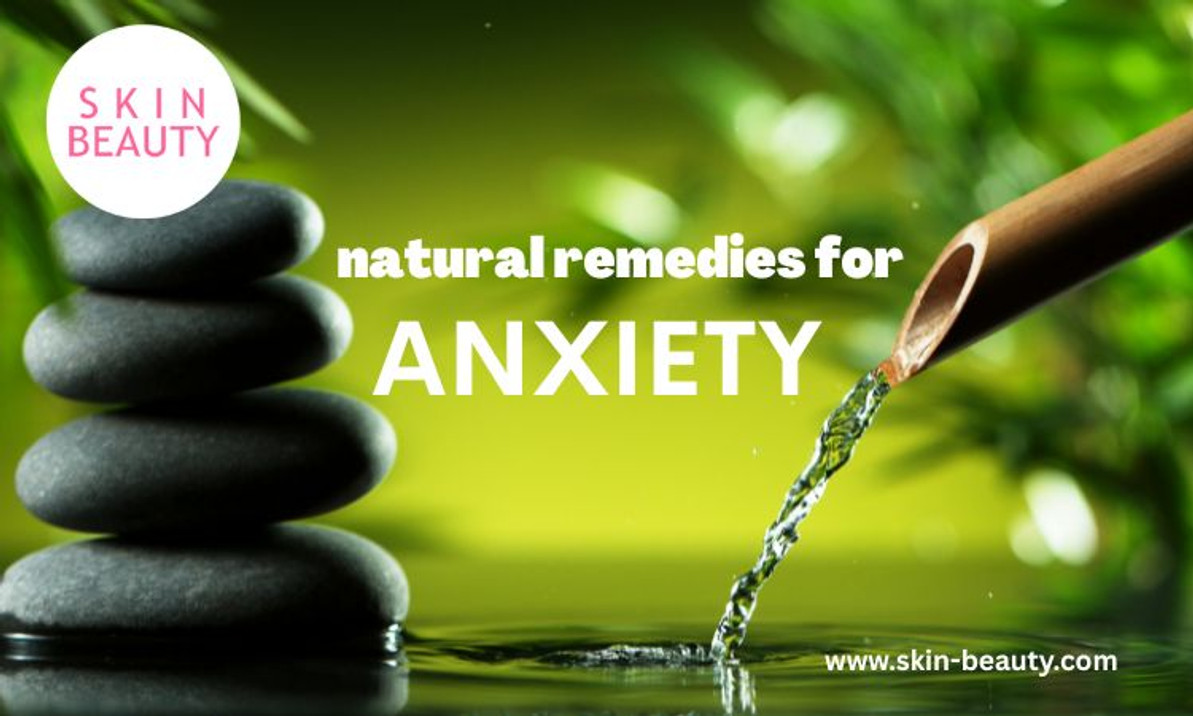How Long Does Razor Burn Last?
How Long Does Razor Burn Last? A Guide to Understanding and Treating Razor Burn.
Have you ever experienced that annoying, itchy, red rash after shaving? Razor burn can be a real nuisance, but understanding it better can help you prevent and treat it effectively. In this guide, we will explore what razor burn is, its causes, and how you can minimize the chances of dealing with this irritating skin condition. Additionally, we will answer the common question: how long does razor burn last?
Key Takeaways
- Follow quality shaving practices & use the right products for your individual needs to prevent razor burn.
- Identify and treat razor burn with natural remedies, over-the-counter solutions & home remedies.
- Incorporate a reliable skin care system into your routine to reduce the duration of symptoms and promote healthy hair growth.
Understanding Razor Burn: Duration and Symptoms

Razor burn is a common skin irritation that can last anywhere from a few hours to 2-3 days with proper treatment. However, if left untreated, it may take up to 2 weeks to heal. Symptoms of razor burn include redness, itching, and a mild burning sensation, which can be caused by using a dull or dirty razor blade. So, how long does razor burn last? Using a sharp and clean razor blade can notably minimize the risk of razor burns and reduce the duration of how long razor burn last.
Adopting a reliable skin care system can help you heal faster, reducing the time razor burn lasts. Incorporating excellent ingredients in your shaving cream or gel can reduce inflammation and irritation caused by shaving, providing a smoother and more comfortable shave. Moisturizing also plays a key role in preventing razor burn, as it fosters healthy skin cells and shields the skin from potential shaving-induced irritation.
Factors Affecting Razor Burn Duration
Factors that influence the duration of razor burn include:
- Your skin type
- Hair texture
- Shaving frequency
- Technique
Individuals with sensitive skin may experience longer-lasting symptoms, but their skin sensitivity can also prompt them to take extra care of their skin. Coarse hair can be more protective, potentially resulting in longer-lasting relief from razor burn.
Shaving less often can also help reduce razor burn and its accompanying symptoms. Shaving with the grain (in the direction of hair growth) is a technique that can help minimize the duration of razor burn symptoms.
Identifying Razor Burn vs. Razor Bumps
Differentiating between razor burn and razor bumps is vital as these distinct skin irritations necessitate unique treatments. Razor burn is a skin irritation characterized by red rashes or bumps, which can be easily managed. On the other hand, razor bumps are caused by ingrown hairs that curl back into the skin, resulting in inflammation and irritation. It’s important to understand why razor bumps happen in order to effectively prevent and treat them.
While razor burn can lead to red, irritated skin, razor bumps can contribute to the growth of healthy, new hairs. Using soothing creams or gels can help treat razor burn, while exfoliating products and giving the skin time to heal are effective ways to treat razor bumps.
Causes of Razor Burn

Razor burn can be caused by various factors, such as shaving against the grain, using dull or dirty razors, and applying too much pressure during shaving. Taking preventative measures, like shaving with the grain, using sharp and clean razors, and using gentle pressure during shaving, can help prevent razor burn.
Shaving Against the Grain
Shaving against the grain refers to shaving in the opposite direction of hair growth, which can provide a closer shave but also increase the risk of razor burn and irritation. Although it might be tempting to shave against the grain for a smoother finish, it is recommended to shave with the grain first and then, if necessary, shave against the grain to minimize the risk of irritation.
Shaving with the grain can reduce irritation and decrease the risk of razor burn.
Using Dull or Dirty Razors
Using dull or dirty razors can lead to skin irritation and razor burn. To ensure you always have a sharp and clean razor, make sure to replace your razor blades regularly, clean your razor after each use, and store it in a dry place.
If you find yourself dealing with razor burn caused by dull or dirty razors, there are several options available for treatment, such as natural remedies like aloe vera, over-the-counter products like hydrocortisone cream, and home remedies like cold compresses.
Prevention Strategies for Razor Burn

Preventing razor burn entails proper skin preparation, selecting the appropriate razor, and mastering your shaving technique. In the following sections, we will delve deeper into these prevention strategies and how they can help you avoid the discomfort and irritation associated with razor burn.
Preparing the Skin for Shaving
Preparing your skin correctly is key to achieving a smooth and irritation-free shave. Here are some steps to follow:
- Exfoliate to remove dead skin cells and reveal hair follicles for a closer shave.
- Use warm water or shave after a warm shower to soften the skin and hair.
- Apply a pre-shave oil with nourishing ingredients like Argan oil, jojoba oil, sunflower oil, and tea tree oil to help prevent razor burn.
By following these steps, you can ensure a smooth and comfortable shave.
Cleansing the skin, exfoliating, applying pre-shave oil, using warm water or shaving after a shower, applying shaving cream or gel, and shaving in the direction of hair growth are the best steps to take for a super smooth shave.
Choosing the Right Razor
Selecting the right razor can significantly reduce the risk of razor burn. A single-blade razor is the ideal choice for preventing razor burn, especially for those with sensitive skin, as it provides a smooth and gentle shave. Additionally, using a razor with multiple blades and a lubricating strip can also help ensure a smooth, comfortable shave.
Perfecting Your Shaving Technique
Shaving in the direction your hair grows is the most effective technique to prevent razor burn as it promotes healthier hair growth. Short, light strokes and not pressing too hard with the razor will also help prevent razor burn.
Applying shaving cream or gel can help the razor glide smoothly and safely against the skin, further reducing the risk of irritation.
Treating Razor Burn: Home Remedies and Over-the-Counter Solutions

Whether you’re dealing with mild or severe razor burn, there are several home remedies and over-the-counter solutions available for treatment.
Let’s explore some of these treatment options to help you find relief and soothe your skin.
Natural Treatments

Natural treatments for razor burn include aloe vera, tea tree oil, and apple cider vinegar. A cool washcloth can be used on the affected skin, followed by applying aloe vera oil directly on the razor burn to soothe itching and provide relief from discomfort.
Mix tea tree oil and water in equal quantities. Apply the mixture to razor-burned skin for a soothing effect. The calming sensation it provides can help reduce discomfort and irritation. Apple cider vinegar can effectively reduce the inflammation caused by razor burn.
Over-the-Counter Products
Over-the-counter products for razor burn treatment include:
- Hydrocortisone cream: effectively reduces inflammation and itching related to razor burn, as well as redness and swelling.
- Aquaphor: helps nourish and hydrate the skin, relieving the discomfort linked to razor burn and diminishing redness and swelling.
- Fragrance-free lotion: helps nourish and hydrate the skin, alleviating the discomfort associated with razor burn while diminishing redness and inflammation.
When using over-the-counter products for razor burn, follow the product label instructions and use them as directed for the best results.
Best Shaving Practices to Avoid Razor Burn

You can avoid the discomfort and irritation of razor burn by opting for quality shaving products, sticking to a consistent shaving routine, and giving your skin time to heal.
In this final section, we will summarize the best practices for a smooth, razor burn-free shave.
Choosing Quality Shaving Products
Opting for quality shaving products like pre-shave oils, shaving soaps, and aftershave essentials is a significant step toward preventing razor burn. These products are specifically designed to provide a smooth and comfortable shaving experience, reducing the risk of irritation and razor burn. Some high quality shaving products available include:
- Keune 1922 by J.M. Keune Superior Shaving Cream
- Skin Authority Anti-Aging Shave Serum
- Brickell Men's Products Smooth Brushless Shave Cream
- Anthony Skin Shave Gel
- Hommage Shave Balm
To choose the right quality shaving products, consider your skin type and the type of razor you are using, read reviews, and do research to find the perfect product for your needs.
Establishing a Consistent Shaving Routine
Maintaining a regular shaving routine is key to dodging razor burn. This includes exfoliating once or twice a week to remove dead skin cells and reveal hair follicles for a closer shave. Using warm water or shaving after a warm shower can help ensure a smooth, comfortable shave, as it softens the skin and hair.
Applying a pre-shave oil with nourishing ingredients like Argan oil, jojoba oil, sunflower oil, and tea tree oil can be beneficial in helping to prevent razor burn.
Allowing Skin to Heal

Giving your skin time to heal post-shaving is vital in preventing razor burn. This means avoiding shaving daily on irritated skin and using natural shaving products like aloe vera, coconut oil, shea butter, and jojoba oil to nourish and protect the skin while shaving.
By giving your skin time to heal, you can effectively minimize the likelihood of experiencing razor burn.
Summary
In conclusion, razor burn is a common but preventable skin irritation that can be effectively managed with proper care and treatment. By understanding the causes of razor burn, implementing prevention strategies, and utilizing home remedies and over-the-counter solutions, you can achieve a smooth, comfortable shave free from irritation. Remember to prioritize your skin’s health and well-being by choosing quality shaving products, establishing a consistent shaving routine, and allowing your skin the time it needs to heal.
Frequently Asked Questions
How do you get rid of razor burn fast?
Soothe and heal razor burn fast by applying a cool washcloth or moisturizer to the affected area. For quicker relief, try using aloe vera gel – it can help get rid of razor burn in an hour or less.
How long does it take razor burn to go away?
Razor burn usually clears up within 2 or 3 days, while razor bumps can take up to 2 weeks to go away. Taking steps to treat it as soon as possible can help the symptoms resolve faster. If your symptoms don't improve within a few weeks, seek advice from a healthcare professional.
Do I have razor bumps or an STD?
It is unlikely that you have an STD because the symptoms typically associated with them, such as discharge, is not present. Razor bumps and folliculitis can produce similar-looking bumps or sores but they typically appear as a patchy skin rash and sometimes small red pimple-like bumps. So, it's likely that you have razor bumps or folliculitis.
How to get rid of razor bumps?
To get rid of razor bumps, start by dousing your skin with cool water after shaving and using over-the-counter treatments such as benzoyl peroxide or hydrocortisone. For more severe cases, combine a retinoid, topical steroid, and antibacterial product, and also try salicylic acid spot treatments, aloe vera, and preventive measures like warm washcloths.
How can I prevent razor burn?
To prevent razor burn, shave with the grain, use sharp and clean razors, apply gentle pressure during shaving, and prep your skin before shaving for best results.
Recent Posts
-
Rice Water for Skin Benefits
Rice Water for Skin Benefits Rice water for skin has become a viral beauty trend that is suppos …Apr 4th 2025 -
Natural Remedies for Anxiety
Natural Remedies for Anxiety Everyone experiences anxiety symptoms every now and then. We live in a …Mar 28th 2025 -
Hair Loss Treatment
Hair Loss Treatment for Every Stage of Thinning Hair Hair loss is a common concern that affects mill …Mar 18th 2025




